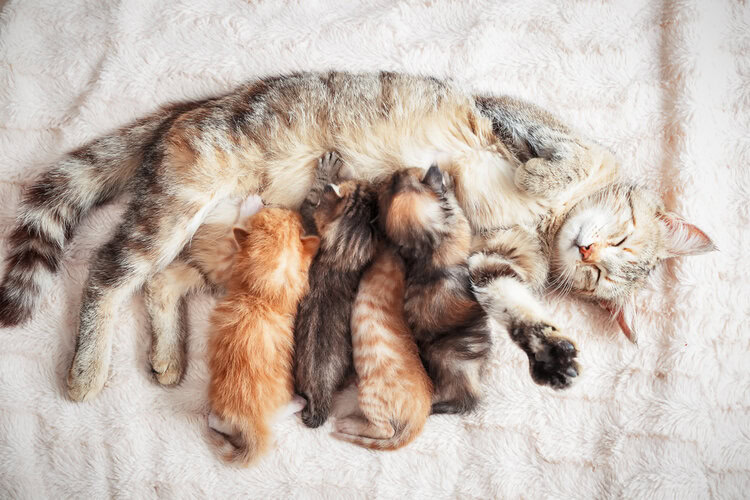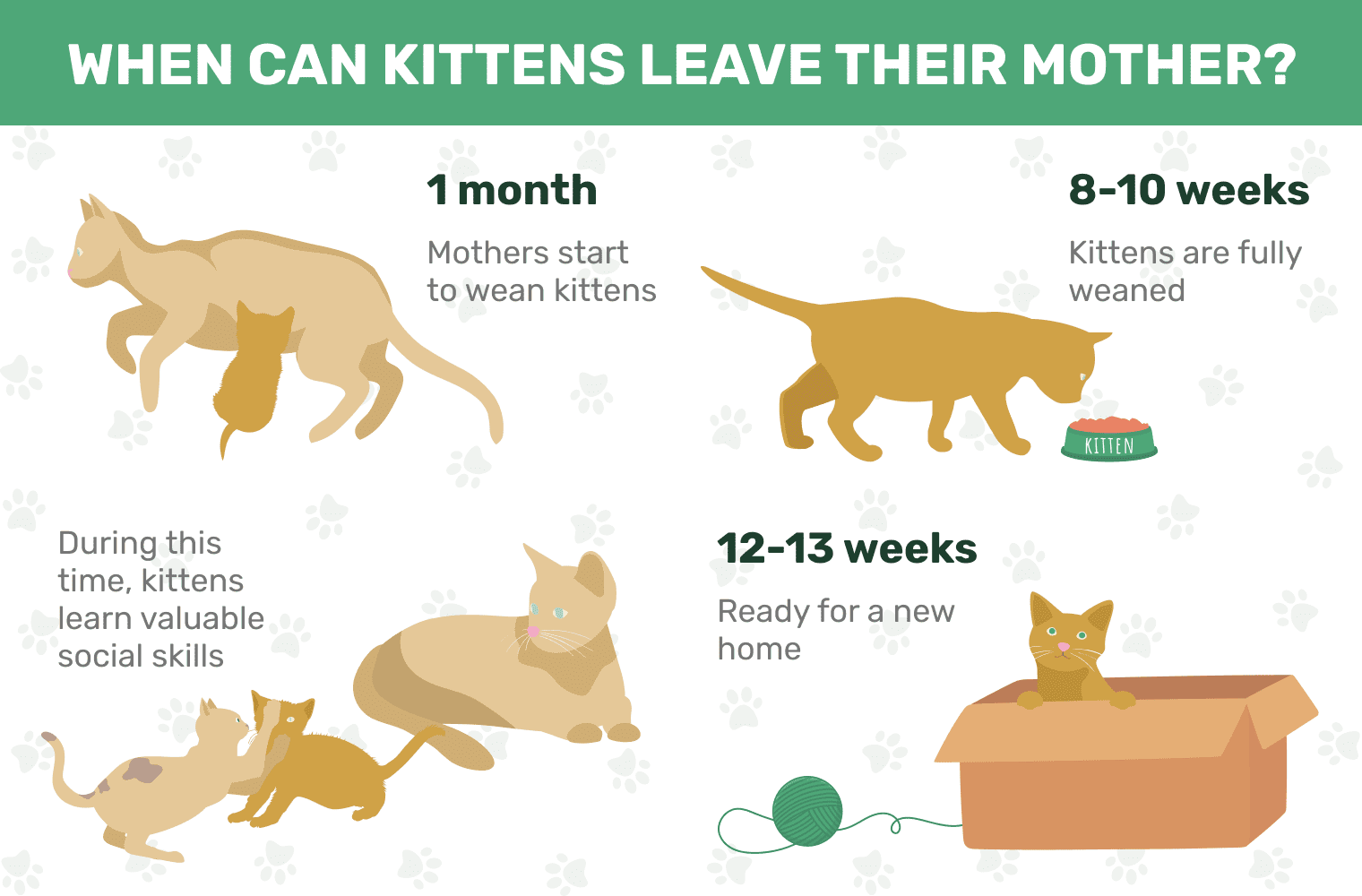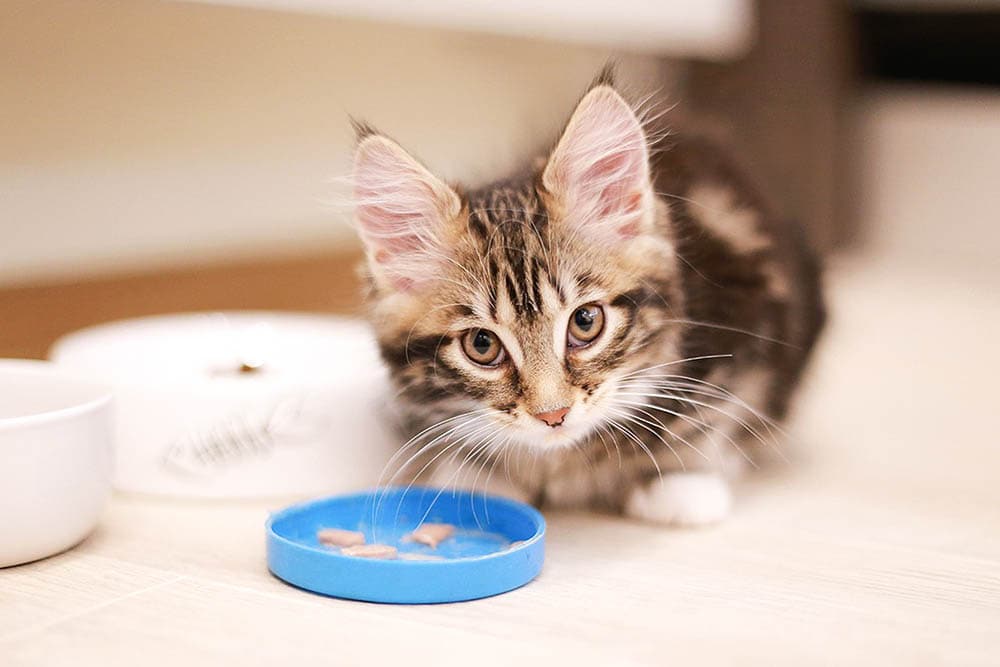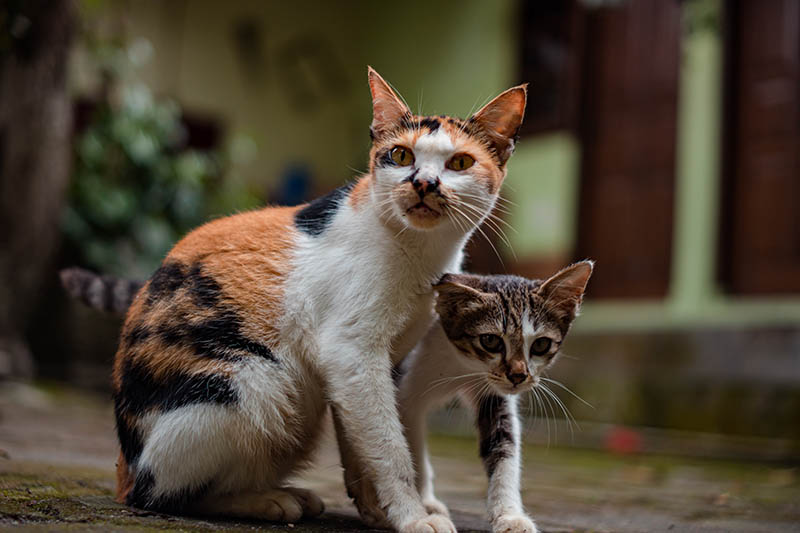VET APPROVED

The information is current and up-to-date in accordance with the latest veterinarian research.
Learn more »Click to Skip Ahead
People commonly believe that kittens can leave their mothers at 8 weeks of age, and this misconception is supported by the fact that it is the age when most breeders rehome their cats. However, kittens who leave their mothers at this age are more likely to suffer developmental problems and are unlikely to have learned essential skills like socialization and litter training.
It is, therefore, best to leave the kittens with their mother until they reach 12 weeks of age.
By this time, they know how to use the litter box, have received vaccinations, gain some independence from their mother and littermates, and their immune systems will be fully developed. You may have to wait longer before taking your kitten home, but it will be worth the wait to enjoy a better-developed, better-socialized, and more independent young cat.

Kitten Development – 2 weeks
A kitten depends on their mother for everything during the first four weeks. They provide milk, ensure the kitten urinates and defecates properly, and they keep their young out of harm’s way. A very young kitten cannot regulate their body temperature, and they rely on their mother to keep them warm or cool them down, as required. They are also born blind and need their mother to guide them.

Kitten Development – 3 to 7 weeks
After 4 weeks, the kitten’s eyes open, and they start moving around. At this stage, the kitten will learn to walk unaided and start to develop the skills needed to hunt, survive, and even use the bathroom. They even begin to learn some basic communication skills. The mother also corrects inappropriate behavior, teaching your future kitten how to behave well.

Kitten Development – 8 to 12 weeks
By 8 weeks, the kitten should be weaned onto solid food. However, some kittens may continue to drink milk until they reach 10 weeks of age. The mother will continue to train her kittens and correct bad behavior.
By 12 weeks, most kittens will be ready for rehoming and separation from their mother. However, some kittens benefit from being left with their mother for an additional 2 weeks.

Kitten Development – 3 to 6 months
Between 3 and 6 months, your kitten will start gaining weight. They will lose their baby belly and become more muscular. Some cats can reach sexual maturity by the time they reach 6 months of age, but it will usually take a little longer with most breeds. Kittens can undergo spaying or neutering at the 6-month stage.
If you need some more pointers or advice on when to spay or neuter your cat, calling a vet is a great option.
Kitten Development – 6 to 12 months
During this stage, your kitten is transitioning through their teenage period into young adulthood. Most kittens lose their baby teeth when they’re 8 months old. Your vet may recommend removing any remaining baby teeth when your cat is spayed or neutered. Cats of this age will start to explore more and gain confidence, and they may begin to look for lap time and cuddles with you and other family members.
When your cat reaches 10 months, you should gradually transition to an adult formula to prevent too much weight gain and ensure that your cat gets the right balance of vitamins and minerals to be healthy and fit.
When a cat is a year old, they’re an adult but may still show some kitten tendencies.

Will Your Kitten Miss Their Mother?
Kittens forget their mothers quite quickly once separated. This might seem harsh to humans, but it is a survival trait that serves wild cats well. Once they have developed hunting skills, the kitten leaves the litter and looks for a mate and new territory. If they become too attached to their mother, the kitten would stay in the same area, leading to competition for food and the potential for inbreeding with littermates.
It also benefits domestic kittens because they can go to new homes without suffering emotional trauma. It may take a day or two, but most cats adjust to their new environments.

Conclusion
Some breeders and owners say that kittens are ready to leave their mothers when they are eight weeks of age. However, waiting until a kitten is 12 weeks old is better. By this stage, they will have been fully weaned, will have a good understanding of using a litter tray, and will have gained independence from the rest of their litter. A kitten’s immune system is stronger when they’re 12 weeks old.
You can meet the kitten at a younger age but try to wait until they’re 3 months old before you take them to their new home.
See also:
- Is It True That Male Cats Kill Kittens? The Surprising Answer
- Will a Mother Cat Abandon Her Kittens If Touched By Humans? Vet Reviewed Facts & FAQ
Featured Image Credit: yasuspade, Shutterstock











